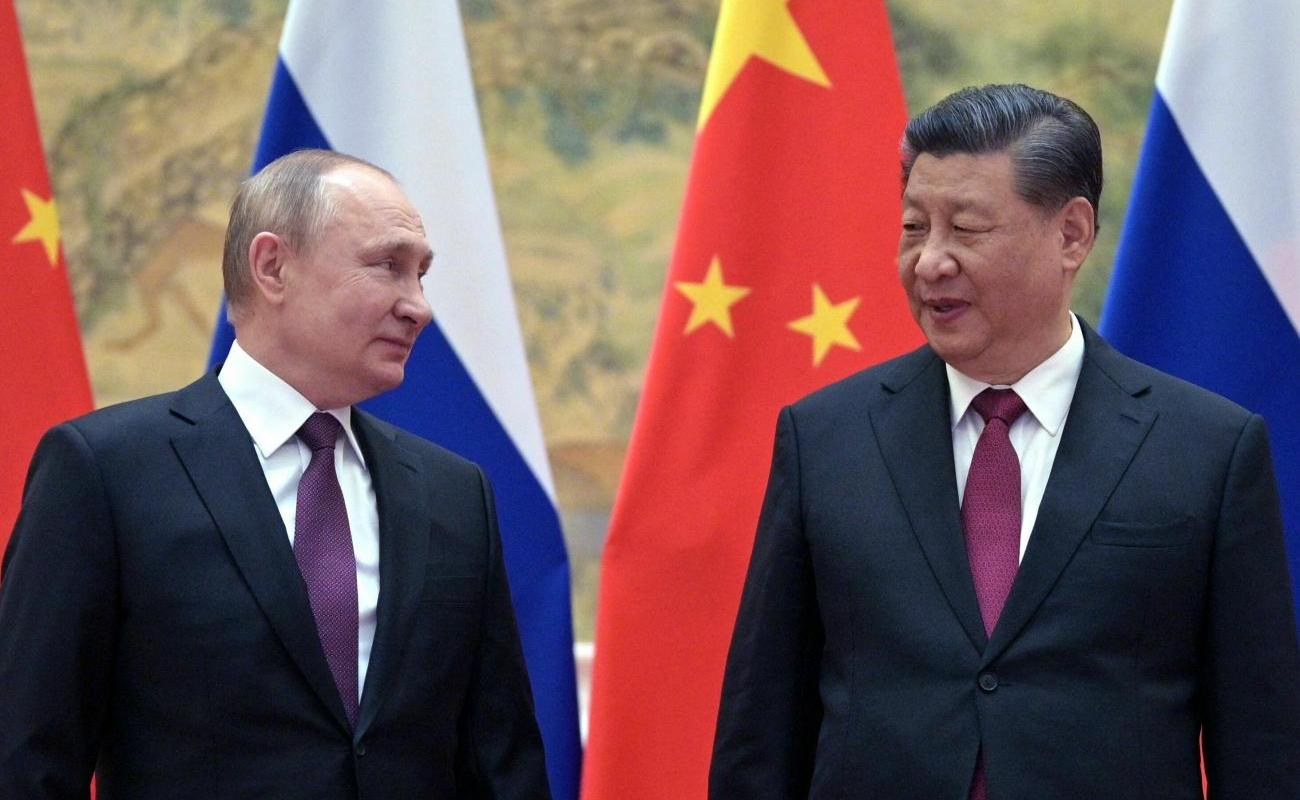China's Backing Of Russia Is Harder To Deny. Ukraine Is Taking Notice.

The arrest of two Chinese nationals in Ukraine on espionage charges this month has punctuated a shift in Kyiv’s tone toward Beijing, whose support for Russia’s war is becoming harder to ignore.
Ukraine’s intelligence service on July 9 said a 24-year-old Chinese man – expelled from a Ukrainian technical school two years ago – tried to obtain classified information about the Neptune missile program by befriending a defense worker. Authorities say he intended to pass the information to his father, who was also arrested, for delivery to Chinese intelligence.
The arrests came just one day after President Volodymyr Zelenskyy imposed sanctions on five Chinese companies for aiding Russia’s war effort, an unusually direct move by Ukraine.
From the outset of Russia’s full-scale invasion, Beijing has claimed neutrality while buying up Russian oil and gas –- Moscow’s financial lifeline –- and supplying dual-use technology to its military. Kyiv, like many in the West, had hoped China would use its leverage over Russian President Vladimir Putin to press for peace.
That hope appears to be fading.
China, once content to provide components like microchips, is now believed to be delivering entire systems. In May, pro-Russian Telegram channels claimed Moscow was using a new Chinese laser weapon to shoot down Ukrainian drones.
This week, Ukraine’s military intelligence agency said Moscow is now launching drone decoys assembled inside Russia but made entirely from Chinese parts.
Meanwhile, Beijing has been welcoming officials from Ukraine’s occupied territories at trade shows while Chinese companies have been selling heavy equipment to Russian companies operating in those territories.
The shift in Beijing’s behavior comes amid reports that China is no longer even pretending to be neutral.
EU officials told RFE/RL that Chinese Foreign Minister Wang Yi told the bloc’s top diplomat Kaja Kallas during a July 3 meeting in Brussels that Beijing does not want Russia to lose the war, fearing it would free up the United States to focus more directly on China. Wang, the officials said, denied that China is backing the war, but his comments marked a departure from Beijing’s previous ambiguity.
At an EU-China summit on July 25, European Commission President Ursula von der Leyen told her Chinese counterpart Xi Jinping that relations between Brussels and Beijing were at an "inflection point" while issuing a thinly veiled warning that China's relationship with Moscow was a "determining factor" in how the ties would proceed.
Ukraine’s recent actions -– from espionage arrests to corporate sanctions –- suggest Kyiv is adjusting its stance as well.
“I think there has been a certain evolution,” said Oleksandr Merezhko, chair of the Ukrainian parliament’s foreign affairs committee.
“At the very beginning, there was some hope China could be involved in the [peace] process. But now we’ve become more realistic and speak more openly: China supports Russia.”
Beijing declined an invitation to attend the Ukraine peace summit in Switzerland last year, which drew representatives from more than 100 nations and organizations.
As recently as December, Zelenskyy had expressed hope of restoring prewar trade levels with China and deepening ties with the country as he accepted Beijing’s new envoy to Ukraine.
But that optimistic tone had changed by June, after China halted exports of drone parts to Ukraine. Days later, Zelenskyy traveled to Singapore and delivered what experts said was his first public criticism of Beijing since the invasion.
In July, at the Ukraine Recovery Conference in Rome, he warned that countries backing Russia would be excluded from postwar reconstruction –- a message widely interpreted as aimed at China.
Growing Distance
Meanwhile, the US-Ukraine agreement signed in June on critical minerals investment also calls for the exclusion of countries supporting Russia, underscoring the growing distance between Kyiv and Beijing.
Still, Ukraine is treading carefully.
China remains its largest trading partner by far, exporting more to Ukraine than Poland and Germany combined. Disrupting that trade would further strain Ukraine’s war-battered economy.
Some in Kyiv see benefits in the cooling relationship.
“Additional criticism of China from Kyiv will align with the United States in its confrontation with Beijing,” Vita Holod, a board member of the Ukrainian Association of Sinologists, told RFE/RL.
For now, Ukraine isn’t severing ties, but the illusion of China’s neutrality has evaporated in Kyiv.
